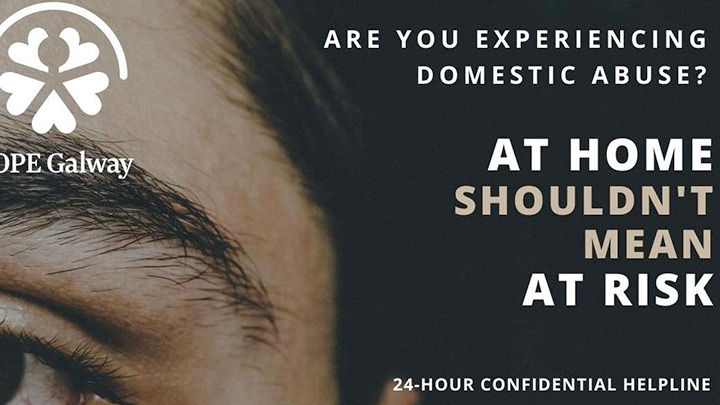“You do not have to stay at home. You can leave. If you are ready and can safely do so, call us or call in, we are open 24/7.”
As winter approaches and our thoughts turn to cosy nights in by the fire, our natural inclination is to choose to stay in the comfort of our own homes. This winter is different as we enter into a season of great uncertainty with the Covid-19 pandemic and the restrictions imposed. Our choices about staying in or going out are severely limited.
While we naturally do not like our choices to be taken away from us, we know these restrictions are for the greater good. So we do our best to play our part in helping to stop the spread of this virus.
Mostly, we cope with confinement with support from loved ones and even though most connections are of the virtual kind, they help to reduce feelings of isolation. Being more confined and forced to spend more time together in the house can undoubtedly lead to frustration – we manage this by going out for a walk to clear our heads or by getting out from each other’s feet. We do this because we love and care for each other.
Imagine then what it must be like for those who cannot leave, for women and children who are isolating with an abusive and controlling partner, who can now use this virus to further wield power over those whom he claims to love, indeed sometimes doing it in the name of love. What choices do these women have when their home becomes a prison rather than a safe haven?
Domestic abuse and coercive control, by their very nature, ensure that the woman’s world becomes smaller; with Covid-19 this is even more so. Abusers use isolation to prevent their victims from connecting with the world.
Since the beginning of the lockdown in March, our service at Modh Eile House has seen an increase in the numbers of women reporting that their partners are using Covid to restrict them further. Some women report that the lockdown has made the control a lot more obvious, that before Covid-19 they managed a little better because he was out at work, or in the pub, or playing golf at the weekends – times she could use to catch up with friends or family or at least have some time to herself.
Now women are reporting lists of ‘rules’ they are expected to live by in the home. From keeping children quiet and out of his way, to being given lists of jobs around the house which must be completed on time and in line with an ever-changing standard. Women report not having any reprieve from this relentless control and abuse. They speak of not being allowed to go for a walk or to the shops, of having their telephone calls and social media monitored or their phone taken away. They whisper to us down the phone in case he might hear or they hang up abruptly because he has entered the room leaving us concerned about their safety. They speak of him checking shopping receipts and of telling her what she can wear; of all access to family and friends or any support networks taken away. They speak of unbearable loneliness and isolation.
Then there are women who have left the relationship and are parenting alone, who worry about court mandated access and having to send children to fathers who flout COVID restrictions, putting themselves and their children at risk. They worry about getting ill or contracting the virus and having no one to look after their children. With many other services shut or having limited capacity, they have lost important social supports from groups they may have attended or cuts in mental health and disability services.
When things get tough in our world we generally have a way of pulling together and supporting each other in whatever way that we can. COPE Galway has certainly witnessed this coming together of our community to help those who are vulnerable during this time. Those of us who work with victims and survivors of domestic abuse know only too well how isolation is a tool that abusers use to prevent their victims from accessing support.
If you suspect a woman you know may be experiencing any of the above or you’re concerned about a friend or family member that you haven’t heard from for a while, reach out and check-in on them and if you think it is appropriate, tell them about our domestic abuse service.
Modh Eile House is a 24-hour support service for women and children who experience abuse in the home. The service is also open to women who have left the relationship and are still experiencing abuse from their ex-partners. We provide refuge, a helpline and an outreach service and adhere to Covid-19 safety guidelines. Most of all we provide a listening ear.
Call our 24-hour helpline 091 56 59 85
For more information or support, contact COPE Galway Domestic Abuse Service, Modh Eile House.
Tel: 091 394880 or Email: modheile@copegalway.ie
COPE Galway Domestic Abuse Service relocated to Modh Eile House in May 2020. The service remains open as normal during all levels of Covid-19 restrictions. The service offers specialised support to women and children experiencing abuse, through refuge, outreach and Solas Óg, a service for children and teens.
The name, Modh Eile (Irish for Another Way) was chosen by women who have experienced domestic abuse. They believe the name will give hope to other women to find a way to rebuild their lives and create a better future for their families after domestic abuse.
In 2019 COPE Galway worked with 638 individual women and their children who were experiencing Domestic Abuse.
